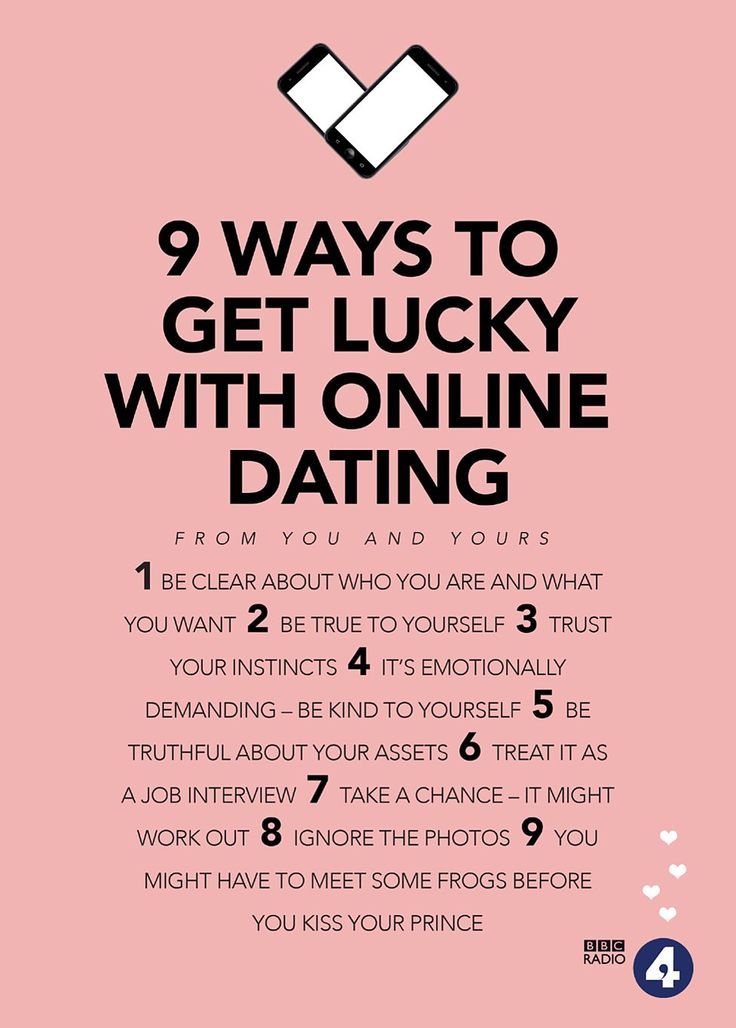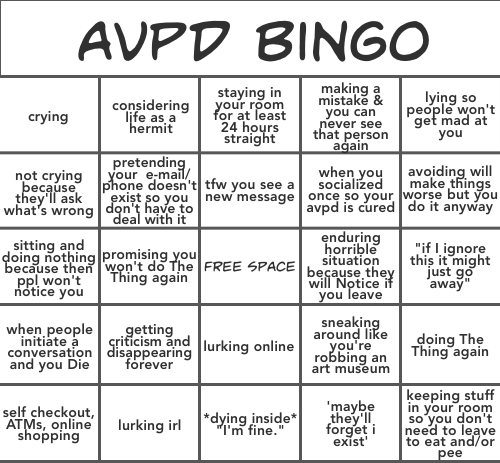My job stresses me out
What to Do If Your Job Is Seriously Stressing You Out
By Olivia DeLong
Medically reviewed in June 2022
No matter what type of work you do, there's bound to be some kind of stress involved.
In fact, 61 percent of Americans say work is one of the top sources of stress. That’s according to the American Psychological Association's 2017 Stress in America Survey, which looked at the major stressors Americans have.
To make matters worse, more than half of the respondents in the survey—56 percent to be exact—feel they could use more support when handling stress.
Whether it's a low salary, a colleague who's hard to work with or gripes about the type of work you're doing, it's completely normal to have work-related stress. Quite often, the stress you endure at work stays with you long after you've left the office—and it can bring with it a host of adverse health effects.
How work-related stress affects you
In the short term, acute stress—which you experience in the moment and which comes and goes rather quickly—may cause headaches and stomachaches. You may also notice having trouble concentrating or having a short temper.
Chronic stress, on the other hand—which continues over stretches of time—can contribute to a variety of longer-term health problems, including depression, anxiety, obesity, acne, heart disease and menstrual problems.
Stress may have collateral effects, too. For example, you may have noticed that when you’re stressed out, you make less-than-desirable lifestyle choices, like eating fast food—and eating more of it than you should—as well as abusing alcohol or smoking.
Why does stress have such a profound impact on your health?
To start, when you’re stressed in the moment, your body releases hormones such as cortisol to help you cope and remain alert for the emergency situation your body believes it’s in.
When you have chronic stress, your body is in a constant state of alertness—with corresponding elevated cortisol levels—even when the original danger has long passed. This constant state of high-alertness can disrupt a variety of bodily processes—including sleep, digestion and the way the body gains weight—which can lead to health issues over time.
To help prevent these reactions, here are some simple ways to get your work-related stress under control.
1. Set work-life boundaries: It’s possible you’re stressed out because you’re constantly working. And while certain careers do require some out-of-office working time, it’s imperative that you come up with an effective way to balance it all, so as to not get overwhelmed. Spending time with loved ones and taking care of yourself is very important when it comes to your mental health.
In order to create work-life balance, you’ll want to understand the expectations of your job up front. Have conversations with your boss to learn about on- and off-duty requirements, and share those insights with your family, too, so they’re aware of your work commitments and schedule.
Once you do understand the parameters, work on establishing priorities and developing a plan to keep pace with your work. Then, set realistic boundaries that you can stick to.
2. Seek help from your manager: If you’re having trouble with priorities or your workload, it’s important to talk to your boss so you can sort it out. Your manager may be able to help you delegate, re-prioritize and better manage your time so you’re left feeling empowered and supported to take on the tasks at hand.
Seek help from your manager: If you’re having trouble with priorities or your workload, it’s important to talk to your boss so you can sort it out. Your manager may be able to help you delegate, re-prioritize and better manage your time so you’re left feeling empowered and supported to take on the tasks at hand.
Come prepared to the meeting with a list of everything you’re working on, your current priority list and the plan of action you think is best for your to-do list.
In addition to talking with your manager, you can also ask your human resources department if your company offers a stress management training program to help you learn more about the sources of stress, how stress levels affect your health and how to manage workplace stress. The Centers for Disease Control and Prevention reports that almost half of large American companies offer these types of programs.
3. Track your stress: Keeping track of your stress levels can help you stay abreast of the activities, times of day or specific situations that may make you stressed.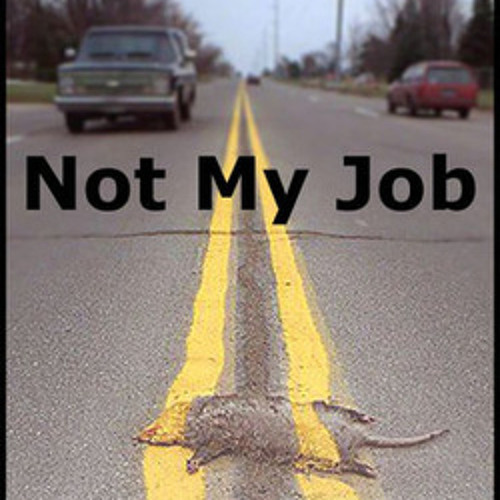
Use Sharecare, an app for and iOS and Android, to manually enter your stress levels. The app also lets you record 30-second conversations with others—or simple monologues you provide—and offers analysis of your stress levels based on how your voice sounds. Using the information, you can to begin lowering your stress levels overall and you can start working on how to cope with specific stressful situations.
4. Take a mental health day: If you’re grappling with work-related stress that’s been building for some time, causing your work and everyday tasks to suffer, taking a mental health day away from work may be beneficial.
Use your day to see your therapist, practice self-care or to handle anything you’ve neglected while you’ve been under stress, like paying your bills, setting a personal budget or seeing your dentist for a teeth cleaning.
5. Practice general stress-reduction techniques: Work-related stress is inevitable—but how you deal with it is what matters. You can work on your stress levels by practicing techniques including:
You can work on your stress levels by practicing techniques including:
- Squeezing regular exercise into your daily routine
- Eating a well-balanced diet
- Getting enough good quality sleep
- Reducing your caffeine and alcohol consumption
- Trying relaxation techniques such as deep and controlled breathing or meditation
Work-related stress is going to crop up, but addressing it proactively before it becomes chronic is the key to better mental and overall health.
Should I Quit My Job if it Stresses Me Out?
(This page may contain affiliate links and we may earn fees from qualifying purchases at no additional cost to you. See our Disclosure for more info.)
Since work is something that takes up around 40-80 of our productive hours each week, it makes sense that the way we feel about our stressful jobs affects the way we feel during our downtime.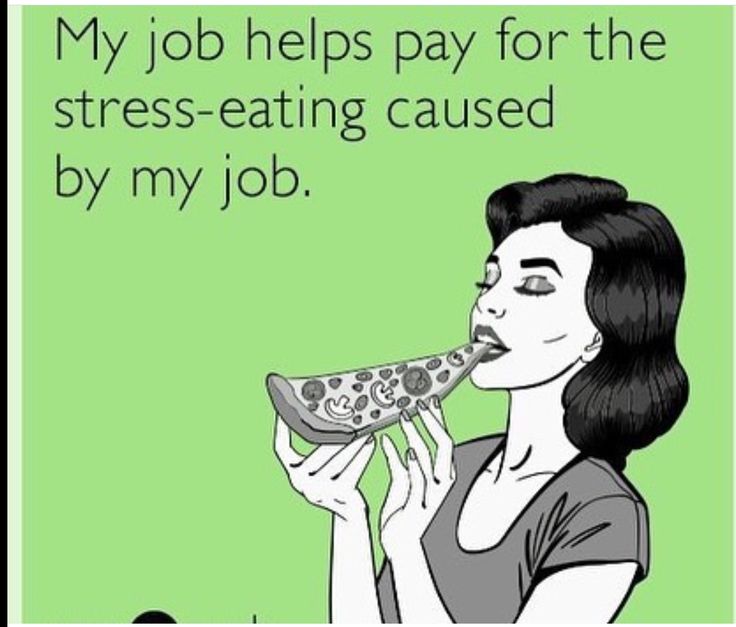
The pandemic has burdened working moms with added responsibilities at home, like managing kids’ schooling.
A recent study by WerkLabs confirms that working women are twice as likely as working men to consider quitting their stressful jobs in the next year. The study found 38% of participants report an impact on their work and well-being.
Yet even if you’re in a miserable position right now, can it make any sense to resign amid a global pandemic?
Experts predict that the global economy will be hurting for a long time. It might be years before unemployment rates reach pre-pandemic levels.
If you have a job you hate or one that's causing you lots of stress, affecting your health negatively, and otherwise making you miserable, it’s important to remember you do have choices.
It may not always feel that way, with bills looming and a mortgage or rent to pay. But there are several steps you can take to improve your situation.
Identify the Cause of Your Stressors
First off, it’s important to know what, exactly, is causing your job-related stress.
- Are you burned out?
- Are you being asked to perform a role you don’t have the qualifications for?
- Is it impossible to work from home and simultaneously homeschool your kids with no personal space?
Keeping a journal, a recommendation of the American Psychological Association, is a good way to identify your specific stressors if you’re not sure:
“Record your thoughts, feelings and information about the environment, including the people and circumstances involved, the physical setting and how you reacted.”
Even understanding the times of day or situations likely to cause your stress to rise, and finding patterns in your reactions, can help you have a better understanding of what steps you should take next.
Read: How Do I Banish the Sunday Night Blues?
The People?
When you’re working with a terrible boss (or difficult coworker), there are some steps you can and should take to protect yourself.
First, meet with HR. Make sure every inappropriate action is documented by HR and by you. Right down the date, the details of the interaction, and exactly what was said. Also consider sharing the interactions with a trusted mentor, your spouse/partner, or a friend.
While you may not be able to do anything about your boss, you can protect yourself in the case of being unfairly terminated at work.
If you feel that you’re being physically threatened in any way, you need to report this behavior to the authorities and leave the situation immediately.
Unemployment insurance often allows workers in dangerous job situations to file claims, even if they voluntarily leave their jobs.
The Tasks?
Are you in a situation where you’re expected to perform a role that you don’t have the qualifications for?
If so, you might benefit from outside training, even if you have to pay for it out-of-pocket. New skills can bolster your confidence and make an overwhelming work situation feel manageable.
Bonus Reading: What Is Impostor Syndrome And Can It Affect My Finances?
Burnout?
If you’re burned out in your job, it may be that you need a break. Are you taking all of your vacation time?
Even a one-week staycation, where you turn off all work-related email and phone calls, can help you mentally.
Alternatively, you might consider going part-time or taking on a job-sharing role. If you’re able to manage this financially, it can be a great way to achieve more work/life balance, which can help with your burnout.
Alternatives to Leaving Your Stressful Job
While it might be keeping you going to fantasize about giving your job two middle fingers, if you’re not in a good economic position to leave, consider other ways of managing a stressful work environment first.
Have a frank conversation with your boss or supervisor.
If you’re overwhelmed by working and extra pandemic responsibilities like virtual schooling, discuss the possibility of a sabbatical, leave of absence, or reduced hours.
Your company undoubtedly has other employees in the same boat who need more work flexibility.
You might find that you can come to an agreement with your employer, allowing you to better manage the increased demands on your time.
Take Steps to Mitigate Your Stress
There are a few simple steps you can take to affect your level of stress at work without having to leave your stress-filled position. One is improving your relationships at work.
Do you have colleagues you can “chat” with over Zoom for an informal lunch date? Have you participated in virtual happy hours?
Focus on improving your relationships with co-workers, especially if you have a difficult relationship with a boss or someone else in the company, in order to develop positive relationships in the workplace.
An additional stressor may be your environment.
If you’re working from home, try implementing a daily walk at lunch in order to get out of the house and get some fresh air. Listen to music if it’s not too distracting, or take an afternoon to refresh your office space with potted plants and pictures.
Listen to music if it’s not too distracting, or take an afternoon to refresh your office space with potted plants and pictures.
Another effective way to process and work through stress is with a counselor.
Many therapists are offering virtual sessions over the computer, making it easier than ever to talk through your problems with a professional. And your employee benefits may pay for this too!
Play the Worst Case Scenario Game
If leaving your stressful job seems like the only answer, make sure to think through all the possible worst-case outcomes.
- What if you can’t find a new job for an entire year? For two?
- What if you can only find a lower-paying position?
- Would becoming a freelancer make sense?
- Could your time away from work negatively affect your career progression?
- Have you already changed jobs recently?
Once you’ve thought through the worst that can happen, see if any of those scenarios sound like situations you can live with.
When even the worst of the worst-case scenarios feels better than your current job, that’s probably a good sign you should resign.
Evaluate Your Money Situation
Before quitting your job, you’ll need to carefully evaluate your finances.
- How much debt do you have?
- What do those minimum payments look like?
- Do you have other sources of income?
- Do you have an emergency fund?
- How many months can you survive without income from this job?
Not sure how to answer these questions? Then you’ll definitely need to spend some time evaluating your finances. Review at least the past three months of expenses to get a real idea of your spending each month.
Download your credit card statements and bank statements and write down every expense you had for each month. Then, average out the expenditures over the three months (or more).
Make sure to include minimum payments in your total. This will give you a rough idea of how much you’ll need to survive each month.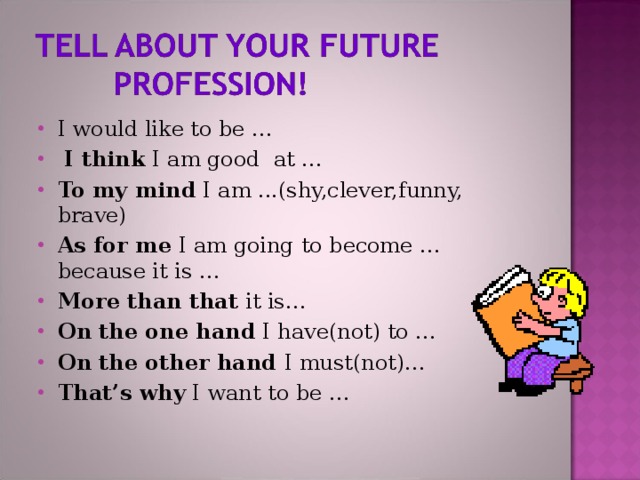 Or give you an idea of where you can cut your spending.
Or give you an idea of where you can cut your spending.
Do you have enough saved to float you for 6 months? A year? Two weeks until you’re paid again?
If you don’t have 4 – 6 months’ cushion – avoid resigning just yet if you can – and set a short-term goal of increasing your savings until you get there.
Even taking a small action like increasing your savings can give you more feelings of control over your employment situation.
Is it Time to Quit Your Stressful Job?
If you’re suffering mentally or even physically from job-related stress, you may have no other choice but to quit your position – don’t stay in a dangerous situation.
However, in today’s work environment, leaving your employer before you have another opportunity lined up is something you want to avoid if at all possible.
Evaluate all of your options with your current employment before jumping ship, and make sure, regardless of your decision, to take steps to save cash. Never a bad idea during these uncertain times.
Next:
- How Can I Plan For A Successful Career Change?
- How to Start a New Job Successfully
Article written by Laurie
Laurie is a team member of Women Who Money and the founder of The Three Year Experiment, a blog about building wealth in order to become location independent.
It's time to go. Why you should look for another job
Does the joke “I'm fine with commuting in principle, but waiting eight hours to drive back really tiring” apply to you?
According to the latest research conducted by the international recruiting company Hays, 33% of employees have been looking for a new job over the past year, 42% have not actively searched, but responded to new interesting offers. The thought that everything is tired and we need to change something in our lives comes to mind for each of us.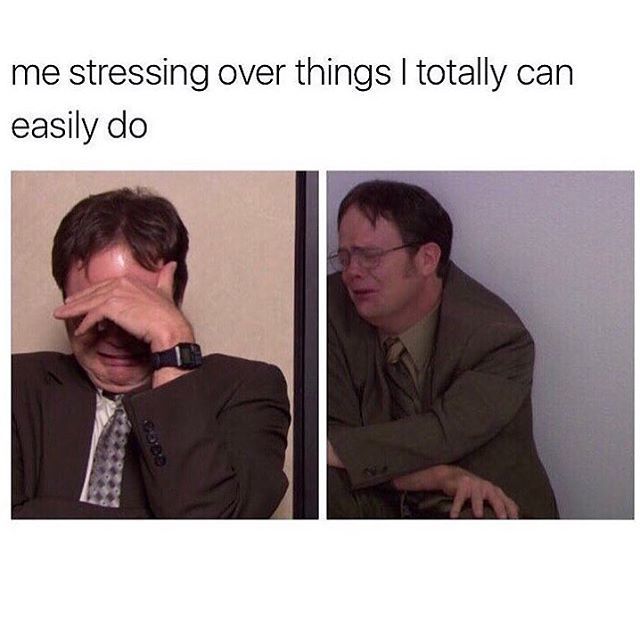 It depends on the mood, the level of fatigue and sometimes even the time of year and the number of sunny days. If thoughts about the necessary changes in life appear more and more often and for the most part are related to work, you should seriously think about it. nine0005
It depends on the mood, the level of fatigue and sometimes even the time of year and the number of sunny days. If thoughts about the necessary changes in life appear more and more often and for the most part are related to work, you should seriously think about it. nine0005
From weekends to weekends
The first signal that you need to change jobs is when you realize that you absolutely do not want and are even afraid of the start of another working week. Not having time to return from vacation, you are already ready to start crossing off the days in the calendar in anticipation of the next one and exist at work only in the waiting mode for the weekend. The best way to describe this situation is the joke: “In principle, I’m fine with commuting, but waiting for eight hours to drive back is really tiring.” nine0005
On Sunday evening your mood is already spoiled, and on Monday instead of the desire to start with renewed vigor on an interesting project, to meet with colleagues and discuss new ideas, you are overcome by a feeling of quiet hatred for everything around you. After a working day, you return in a depressed and irritable state with the thought that something needs to be changed.
After a working day, you return in a depressed and irritable state with the thought that something needs to be changed.
You have reached the "ceiling"
Your career used to develop logically and step by step, but in recent years everything has become familiar and clear. The position does not change, there is nowhere to grow, every day is Groundhog Day. For most, the thought of changing jobs causes excitement, because this is a new environment, leaving the comfort zone, new processes, people. At your current job, you already have an established reputation and an established team, you are financially secure and feel in your place. But if there is a desire to take new horizons and look at interesting offers, then it is time to act. nine0005
Work affects your health
If you often leave the office last, have a snack on the go, take work on weekends and always check your mail on vacation, then sooner or later fatigue will accumulate. Your body is constantly under stress, and the reasons may not always be obvious. If you had enough sleep on the weekends at 20, over the years you may need more time to recover. This affects your efficiency and inclusion in the working rhythm. The main thing is that all this affects your health and daily well-being. In my practice, I meet candidates who were already at the final line: they found the first signs of serious illnesses in themselves and made the decision to go nowhere. Better not to bring it up. If the corporate culture does not imply a different rhythm of work, then you should think about what is more expensive for you: work or health. nine0005
Your body is constantly under stress, and the reasons may not always be obvious. If you had enough sleep on the weekends at 20, over the years you may need more time to recover. This affects your efficiency and inclusion in the working rhythm. The main thing is that all this affects your health and daily well-being. In my practice, I meet candidates who were already at the final line: they found the first signs of serious illnesses in themselves and made the decision to go nowhere. Better not to bring it up. If the corporate culture does not imply a different rhythm of work, then you should think about what is more expensive for you: work or health. nine0005
You feel that no one needs your work
For a long time you understand that your work is meaningless, and if you do not do it, nothing will change in the company. Recently, too many changes have taken place in Russia and in the world that have directly affected the issues of doing business. Under the influence of many circumstances, both commercial and government structures are forced to change. To survive and continue to be effective, companies must change at the same rate as their business environment and competitors. Employees are the main driving force. nine0005
Under the influence of many circumstances, both commercial and government structures are forced to change. To survive and continue to be effective, companies must change at the same rate as their business environment and competitors. Employees are the main driving force. nine0005
Realizing this, more and more candidates are improving their competencies: they strive to gain additional knowledge and skills, go to advanced training courses, study languages and innovative programs. If you understand that you are keeping up with the times, and the company stands still, uses outdated technologies and eschews progress, then this is a powerful argument to enter the market and find application for new knowledge and ideas.
Your responsibilities do not match the available resources
You realize that every day you have more responsibilities, but at the same time, management does not provide resources for delegation and does not change financial conditions.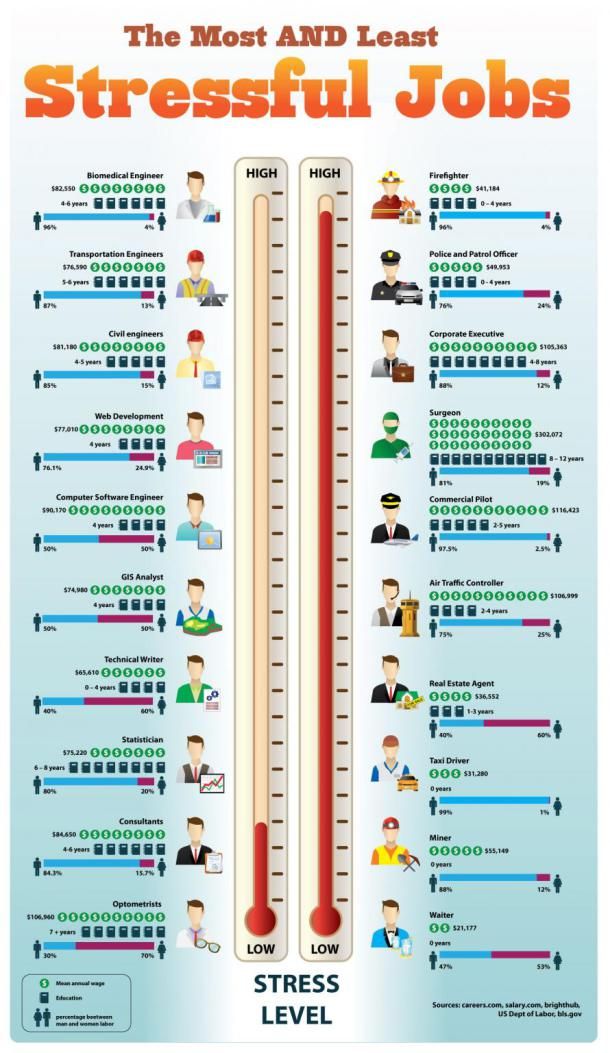 Often this happens with a high turnover of staff or if the authorities want to save on employees. Unfortunately, this situation can lead to professional burnout. You feel like a “workhorse” that is being loaded more and more, but at the same time they do not consider it necessary to motivate both materially and non-materially. There is always a way out - to negotiate with the management, explaining the complexity of the situation. But my experience says that if they don’t hear you and don’t want to compromise, it’s time to change jobs. nine0005
Often this happens with a high turnover of staff or if the authorities want to save on employees. Unfortunately, this situation can lead to professional burnout. You feel like a “workhorse” that is being loaded more and more, but at the same time they do not consider it necessary to motivate both materially and non-materially. There is always a way out - to negotiate with the management, explaining the complexity of the situation. But my experience says that if they don’t hear you and don’t want to compromise, it’s time to change jobs. nine0005
You have been working in one place for too long
In Soviet times, it was customary to work in one organization for as long as possible. It was considered the norm when a person worked in the same company from the institute's bench until retirement. Now the realities have changed. Experts believe that the optimal period of work in one place is from three to five years. If a person works longer, he becomes stagnant, sports passion disappears, sometimes emotional burnout occurs.
If a person works longer, he becomes stagnant, sports passion disappears, sometimes emotional burnout occurs.
In modern companies, career mobility is considered high if a person stays in one position for two or three years. When an employee occupies one position for a long time, the management believes that he is “stagnant” and has lost his competitive advantage. A high rate of climbing the career ladder is an indicator of the competence of an employee who masters new skills with each higher position. In addition, this indicates the penetrating personal qualities of a person: ambition and purposefulness. nine0005
Many employers are wary of candidates who have been with the same company for years and do not move up the career ladder. Sometimes this may indicate the inefficiency of the employee, the lack of flexibility and the narrowness of the professional view. If you feel that you have already worked out at your current place of work, you have no career growth and are not expected, do not be afraid to leave your comfort zone and go to a more promising place.
If you feel that you have already worked out at your current place of work, you have no career growth and are not expected, do not be afraid to leave your comfort zone and go to a more promising place.
You have become a toxic employee
Yes, when you turn a blind eye to one of these factors for a long time and convince yourself that everything is in order and you do not need changes, you may find that you have begun to do more harm than good to your business. You are demotivated, often ineffective, irritable or perpetually dissatisfied. This has a bad effect not only on work, but also on the general atmosphere in the team, especially if you are a leader. Therefore, if a sense of duty to management or colleagues interferes with the decision to change jobs, think about the fact that you do not benefit anyone in this state: neither yourself nor the employer. nine0005
nine0005
- Other people's dreams: how to understand that you are building a career that is not your own
- Groundhog Day: how to survive a career crisis
- Pyramid of needs: how to build a dream career
What to do if you are burnt out remotely? And why is this happening?
Due to the COVID-19 pandemic, many office workers have switched to remote work and have found that they have more stress and less time for themselves. It turned out that when they spent a couple of hours every day getting to and from work, there was more freedom. People now work an average of three hours a day. According to an Eagle Hill Consulting survey, 45% of US employees say they are burnt out. Every fourth of them believes that the reason is in remote work. In Russia, a study on how people work remotely in self-isolation was conducted at Kaspersky Lab and found that 22% of company employees began to spend more time on tasks than before. nine0005
nine0005
Colleagues write at 10 pm…
People interviewed for the Eagle Hill Consulting study named several reasons for burnout: high workload, difficulties in balancing professional and personal life, lack of communication and free time. Employees of Moscow firms who spoke with the TASS author about their overtime during self-isolation say about the same thing.
Read also
VTsIOM: the number of Russians working remotely during the pandemic has increased eight times
"I feel like I'm at work all the time. I used to have an irregular schedule, I also worked overtime. But there was a way home - even if I left the office at 11 pm, I knew that I was free, but now there is no such thing. After all, everyone knows that I'm at home and, in fact, always "at the machine". So, I worked last Sunday. And, most importantly, in communication with colleagues you are limited to business. You can't throw a donut with the words "on, dude , eat." It destroys the atmosphere," Timofey, an employee of a Moscow PR agency, tells TASS.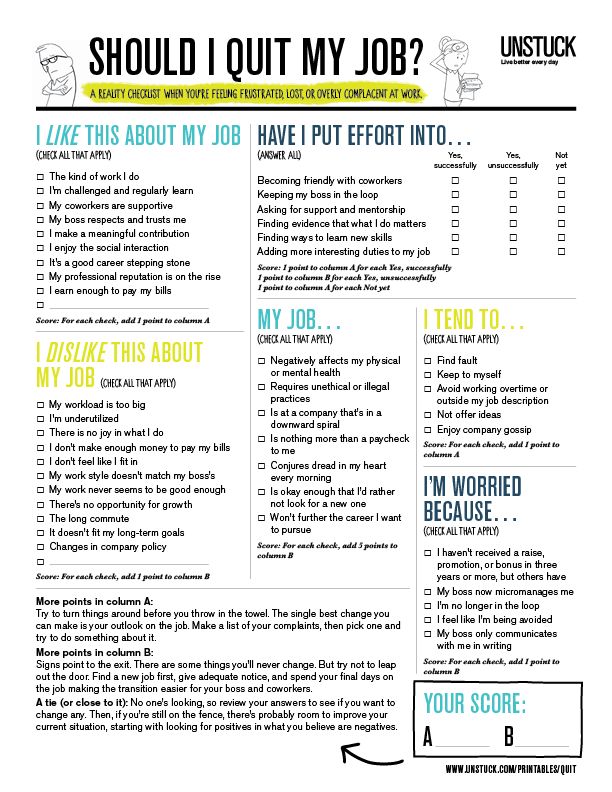 nine0005
nine0005
A lot of guides have been written about how to work remotely and stay healthy (for example, you can read such tips here). Everywhere, experts advise workers not to overwork and follow rules like: after 20:00 do not respond to messages on the case. In practice, people have found it difficult to implement these recommendations.
"Before quarantine, I worked part-time at the institute two or three days a week. I was in the office eight hours a day. The other two or three days I spent on my own projects, lecturing or freelancing. There were rarely emergency tasks, there were no overtime. Now there are fewer tasks, but they appear at any time - colleagues can write at eight in the morning, at ten in the evening. We have a work chat, messages in which do not stop for a minute. My colleagues and I tried to introduce rules: switch to working mode, did not write to the chat in the evening or on weekends, but lasted a couple of days.The reason is the disappearance of the "work-home" border, both for me and for my colleagues.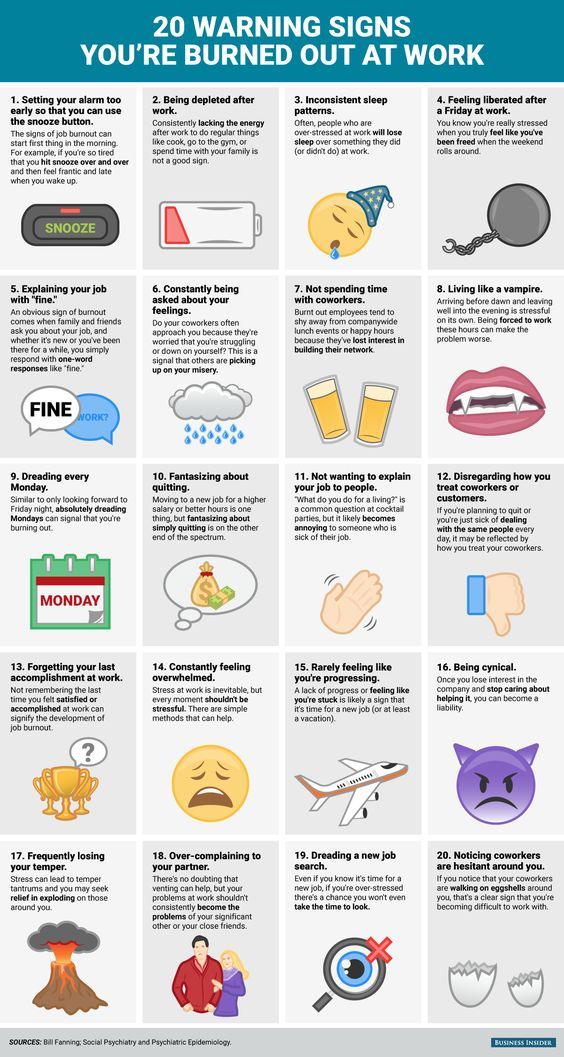 The last working conference was on Saturday at 11 am, although I wanted to sleep and then watch series without getting out of bed. In addition, I have full work these Thursdays and Fridays, although I used to work from Monday to Wednesday. Another reason is that before many issues could be discussed in person, avoiding long correspondence, and now we have to We discuss everything in chats. I don’t feel burnout, but I really look forward to returning to the previous regime,” says Ilya, an employee of the communications department of the Moscow Institute.
The last working conference was on Saturday at 11 am, although I wanted to sleep and then watch series without getting out of bed. In addition, I have full work these Thursdays and Fridays, although I used to work from Monday to Wednesday. Another reason is that before many issues could be discussed in person, avoiding long correspondence, and now we have to We discuss everything in chats. I don’t feel burnout, but I really look forward to returning to the previous regime,” says Ilya, an employee of the communications department of the Moscow Institute.
…the employer requires reports every day…
Managers are trying to control the work of employees, for example, they require reports on completed tasks.
Read also
Remote vs office. When will everyone start working from home?
"Employers have a feeling that if a person is not around and you can't see what he's doing at that moment, he doesn't work. they watched you at the computer,” says Alena Vladimirskaya, founder of the Anti-Slavery and Pruffi HR projects.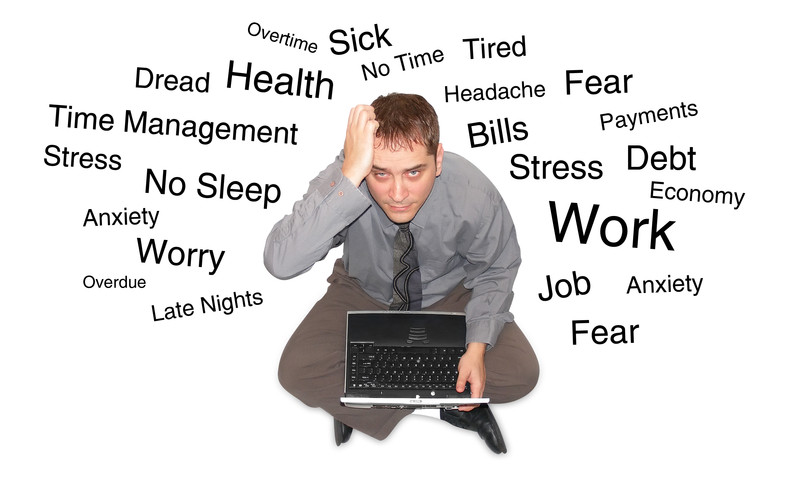
"The most common thing I hear is that employees are demotivated by overcontrol measures. For example, daily performance reports. Employees often have to write summaries of every meeting. So, they have to do double work - solve tasks of their job level, but also monitor their own performance This leads to the fact that people overwork, and to the fact that they are exhausted by non-target activities, work that does not bring value or does not give any product, "explains psychologist Pavel Alexandrov. nine0005
At the same time, company employees have something to worry about other than work.
“People feel anxiety and fear because of the coronavirus pandemic itself, the threat of company closure or dismissal, state restrictions, the uncertainty of the future,” Alexandrov clarifies. “This emotional cocktail can be seasoned from above with a loosely tuned remote work system.”
…there is no place to work in the apartment...
"People usually live in small apartments where there is no separate office, sometimes there is no comfortable desk and computer for work. Someone has to work with a laptop on the couch - it's less convenient, than in the simplest office. If there are children, they are distracting, you can’t explain to them that mom or dad are working. Plus, increased control of the employer. In addition, anxiety for the future and isolation within four walls - all this makes people neurotic, "adds Alena Vladimirskaya. nine0005
Someone has to work with a laptop on the couch - it's less convenient, than in the simplest office. If there are children, they are distracting, you can’t explain to them that mom or dad are working. Plus, increased control of the employer. In addition, anxiety for the future and isolation within four walls - all this makes people neurotic, "adds Alena Vladimirskaya. nine0005
...Zoom fatigue
Many people complain about the fatigue of video conferencing, which now hosts meetings (and often employees note that there are more meetings), even the term "zoom fatigue" has appeared. Such meetings are more tiring than offline meetings in the office. There are several reasons. Video calls are devoid of much non-verbal information - we hardly see gestures or how the interlocutors change positions, so we spend more effort on understanding what they are saying. Watching one’s face eats up part of the attention — it’s hard for a person not to look at himself in a video messenger, but at the same time he understands that everyone is looking at him. Video communication problems cause embarrassment and annoyance. One 2014 study by German scientists showed that communication problems when communicating on the phone or in a video conference negatively affect our attitude towards interlocutors: they are perceived as less friendly and collected. nine0005
Video communication problems cause embarrassment and annoyance. One 2014 study by German scientists showed that communication problems when communicating on the phone or in a video conference negatively affect our attitude towards interlocutors: they are perceived as less friendly and collected. nine0005
How do experienced remote workers cope?
Read also
Quarantined with children: test or new opportunities?
Remote work hit us unexpectedly. There was no time to prepare: arrange a place at home, think through the rules in communicating with colleagues. But it’s not a fact that such training would have helped: those who left to work at home as planned faced similar problems. It took not a couple of months, but years to figure out how to work remotely and feel normal. nine0005
"At first I worked around the clock without days off and holidays. The most stressful thing was to stay in touch 24 hours. And no one set me such a condition. It's just that, for example, a client wrote to me on Saturday evening - I climbed to answer. Now I understand, I had to say that I don’t work on weekends, and disconnect from the Internet. Constant online pressures - you have work, and rest, and study, and communication in it. Gradually, you can, like that frog slowly boiled in milk, slide into depression, " — says Olga Babanina, head of the marketing department, she left for remote work seven years ago. nine0005
Now I understand, I had to say that I don’t work on weekends, and disconnect from the Internet. Constant online pressures - you have work, and rest, and study, and communication in it. Gradually, you can, like that frog slowly boiled in milk, slide into depression, " — says Olga Babanina, head of the marketing department, she left for remote work seven years ago. nine0005
She says that she now understands how to work to be OK: set a clear schedule, warn that you're offline on weekends, go on vacation for at least a couple of weeks a year, don't touch your phone or computer at all on weekends. But even today she does not comply with these rules 100%. "Although in the last couple of years it has gotten better. I work with a psychotherapist and I understand where the legs grow from. This is procrastination, neuroses - when you are too identified with work, you are too afraid of failures and you are afraid to miss something." nine0005
What to do if you are already burned out?
"In an ideal world, you come to the leader and say: I can't concentrate, it seems I'm burnt out," continues Olga Babanina. , but if there is no hope for him, I would recommend going through the following list:
, but if there is no hope for him, I would recommend going through the following list:
- Assess how physiological needs are satisfied: what do you eat, how much sleep, do you play sports, are there other activities besides work. depends on the amount of energy and the ability to think and concentrate.0046
- Unload the brain. It helps to walk and not think about anything - without music, without friends.
- Understand the cause of burnout. You can contact a psychotherapist or any helping specialist. But you can analyze the situation yourself. For example, sit down with a piece of paper and write: "I don't like my job." Next, ask the question "why?" - draw branches. For example, "because I'm tired." Then the question "why?" you have to ask again and answer it. After you get a tree with a bunch of branches, you get to the bottom of the problem. nine0046
- Understand what you personally don't like. I hate calls, so I have two or three calls a week. But I communicate without problems in chats and mail.
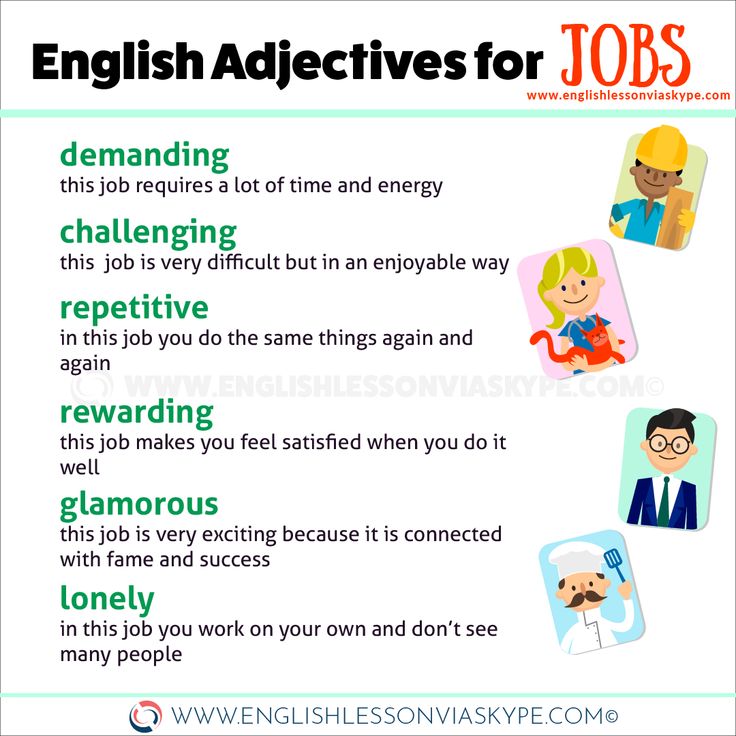
- Take breaks from online to work tasks. Close all chats and mail for an hour and work on a specific task. Otherwise, the day is spent on minor issues, and you have to work at night, when no one touches you. By the way, it's the same in the office. The whole day of the meeting, and then: oh, six o'clock in the evening - finally you can work. "
"Set for yourself the start and end time of the working day," advises Daria Popova, Tutu.ru HR manager. - You can try to create a ritual of the beginning and end of work: change into work clothes, pour yourself tea or coffee in a certain "office" mug. - Spend 20-30 minutes in the morning to remember everything that needs to be done during the day, and scatter it on the calendar by the hour. If you're worried that something urgent might come up and you need to be distracted, set aside an hour for such tasks. Book time on the calendar for lunch and break so you don't forget about them. Stop going to meetings where your absence is not critical. "
"
Maybe change jobs right now?
"I constantly feel burnt out, I hope for a vacation. At the very least, return to the office. To be honest, I often think about changing jobs," says Timofey from a Moscow PR agency.
If you were satisfied with the work, and such thoughts came to self-isolation - this is not the best idea, experts say.
"Firstly, there is no guarantee that a job will be found quickly or that it will be as comfortable in a new field as in the previous one. Secondly, these thoughts arise for the most part due to the fact that a person is physically sitting on one place in his apartment and it seems to him that there has been a pause in development. It is better to wait and listen to your feelings and feelings a little later. You can try to go on vacation, but it is still important to change something: go to the country, to your mother and so on, a vacation within the same four walls may not help, but only aggravate the state of despair and hopelessness," says Daria Popova.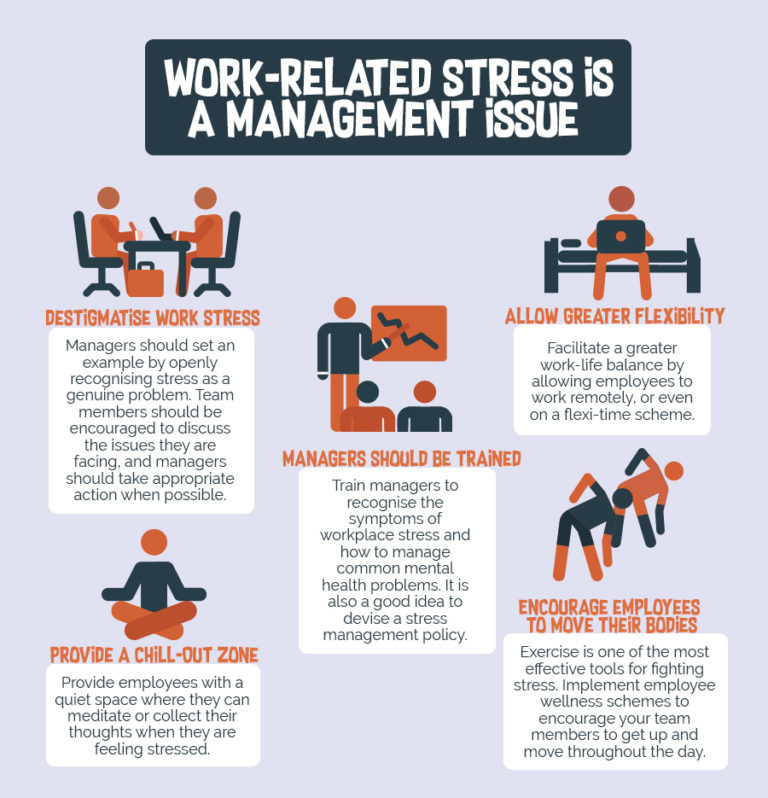 nine0005
nine0005
"Make a decision to change jobs only in a state of happiness and satisfaction, not otherwise," says Pavel Alexandrov.
How can a leader help?
Read also
Emotional burnout. Why it is dangerous, who is at risk and how to deal with it
More than a third (36%) of employees surveyed by Eagle Hill Consulting say that their company does not deal with employee burnout in any way. Only 20% of respondents answered that their employers have changed something in order to maintain their physical and psychological well-being, and this suited them. 18% of employees reported that managers have started doing something in this area. nine0005
Burnt-out professionals are less productive: 45% of survey participants reported that they were less productive.
"Employers need to take care of people's psychological health," says Alena Vladimirskaya. "I know companies that have given employees the opportunity to work with psychologists — that's right. automation of performance monitoring - when the manager sees in the program who is overloaded, who has little work, who is doing well and who is doing poorly, he does not need to load people with reports. nine0005
nine0005
This year, full-time psychologists appeared in many large companies, and they were in the IT field long before the pandemic. There are more votes "for" corporate psychologists, but there are also "against". "We considered a full-time psychologist on staff, but after talking with him, we realized that the behavior of a remote employee is a new and not fully formed case-study, so to speak, and there was no desire to make ourselves and our colleagues experimental subjects. Therefore, the general psychological assistance programs for all employees were not introduced, but instead they launched a series of online courses on stress resistance and neurographics, in which they themselves are involved in the process and can learn how to help themselves,” says Marina Lvova, Director of Organizational Development at hh.ru. nine0005
Most executives today are ready to leave part-time work or flexible working hours after the pandemic. “I think that when the pandemic ends, we will be able to come to a mixed mode of work,” says Ekaterina Melnikova, Yota’s HR director. “Those employees who want to stay remote will be able to work completely from home. Part of the meetings and some processes of individual departments, for example, recruitment, candidate evaluation". nine0005
“Those employees who want to stay remote will be able to work completely from home. Part of the meetings and some processes of individual departments, for example, recruitment, candidate evaluation". nine0005
Working remotely after the pandemic
According to Microsoft research in Europe, employees of companies (not only Microsoft) appreciate the opportunity to work in the office, as it is one of the main ways to keep in touch with colleagues. At the same time, people reported that they would like to spend, on average, about a third of their time (31%) working remotely.
Remote work is a fairly effective format for employee interaction. At the same time, specialists should still have the opportunity to work from the office, if it is so convenient for them, because the traditional format of interaction has a positive effect on team cohesion. nine0154
The work of the future is likely to be a flexible mix of in-person and remote collaboration.
Learn more
